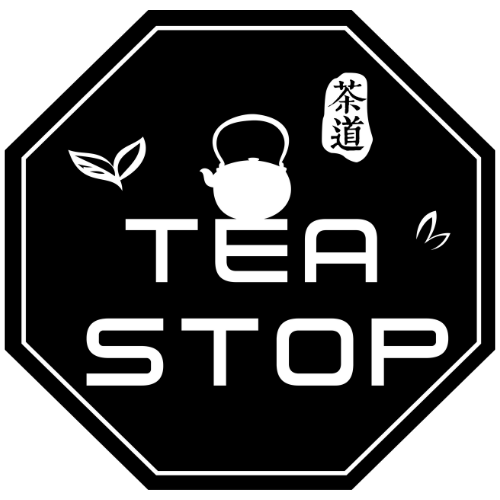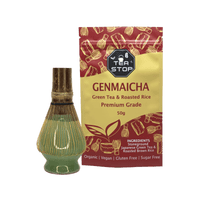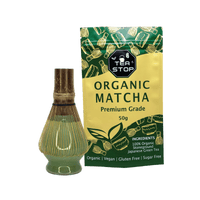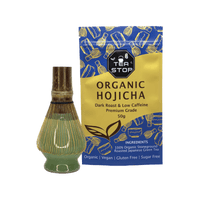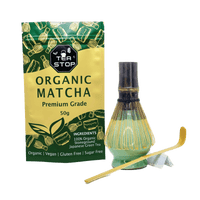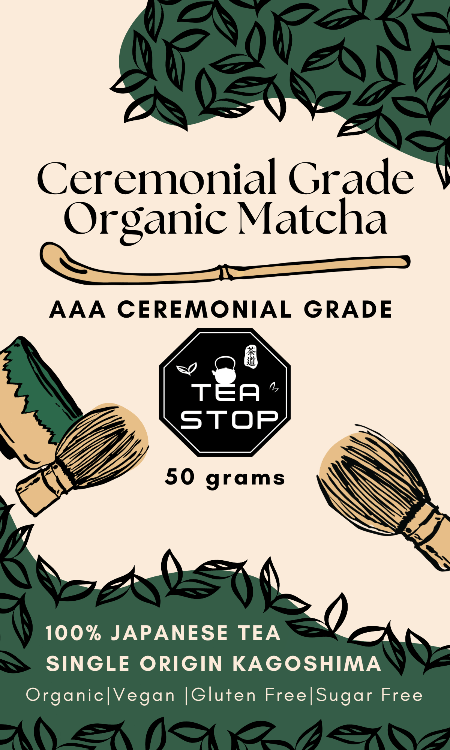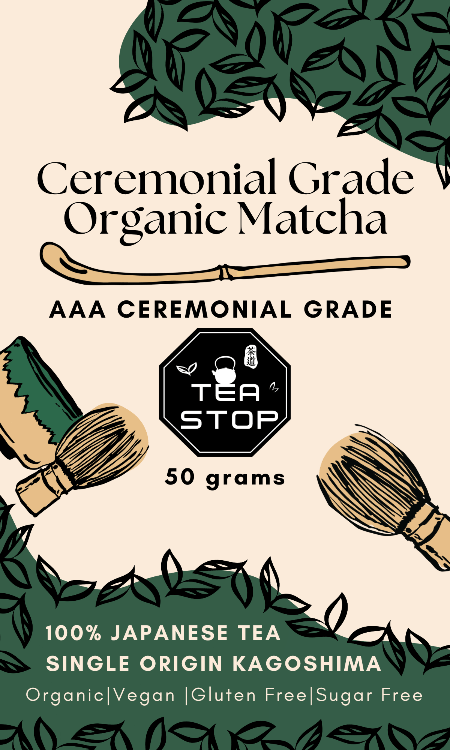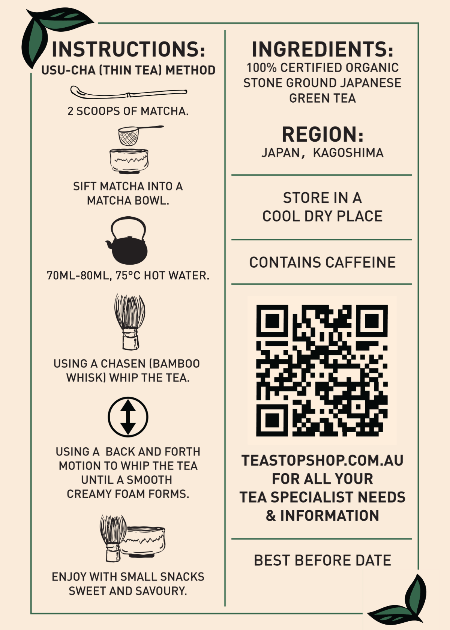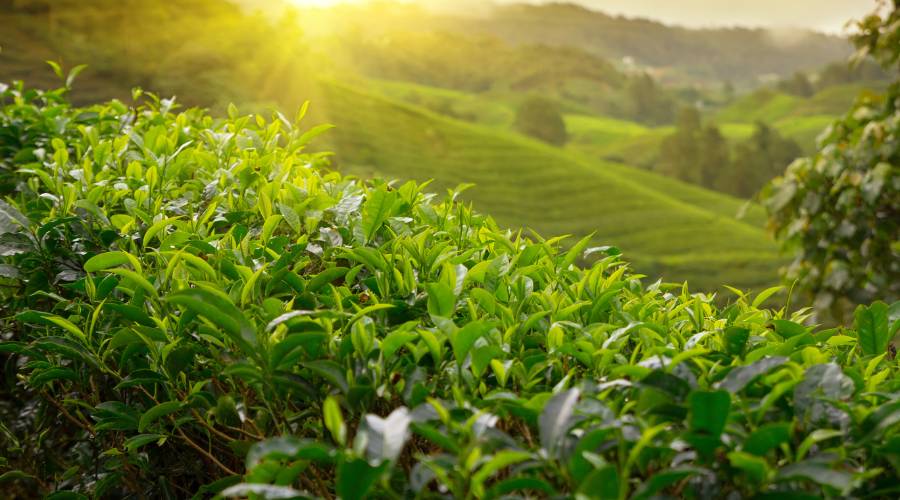
Sustainable Tea Farming: How Organic Practices Benefit the Environment and Tea Quality
Share
Introduction
Sustainable tea farming is an innovative approach within the industry that aims to balance ecological health and agricultural productivity. This method prioritizes the preservation of natural resources, ensuring that future generations can continue to enjoy high-quality tea. In recent years, sustainable tea farming has gained popularity due to its potential to reduce environmental damage while improving the overall quality of tea.
At the core of sustainable tea farming is the use of organic practices. These methods are essential for promoting sustainability as they decrease dependence on synthetic chemicals, thus minimizing pollution and soil degradation. By replacing chemical fertilizers and pesticides with natural alternatives, organic practices not only safeguard ecosystems but also contribute to the production of teas with unique flavour profiles.
Many suppliers, such as Tea Stop Shop, are adopting these methods, showcasing their dedication to both environmental protection and delivering exceptional tea quality. As consumer awareness increases, the demand for sustainably produced and organically certified teas continues to grow, reinforcing the importance of sustainable tea farming in today's market.

The Importance of Sustainable Tea Farming
Environmental Challenges in Tea Production
Sustainable tea farming is not just a trend; it's an essential approach to mitigating the environmental challenges that arise from conventional tea production. As global beverage consumption continues to rise, the impact of the tea industry on our environment becomes increasingly significant.
1. Deforestation and Habitat Destruction
Deforestation for expanding tea plantations is a critical issue, leading to habitat destruction and biodiversity loss. In regions where tea is a major agricultural activity, forests are often cleared to make way for new plantations. This process not only destroys the natural habitats of countless species but also disrupts ecosystems that have taken centuries to develop. The loss of trees and vegetation results in reduced carbon sequestration, exacerbating climate change impacts and contributing to the depletion of biodiversity in these areas.
2. Pollution from Chemical Fertilizers and Pesticides
Conventional tea farming methods heavily rely on chemical fertilizers and pesticides to boost production and control pests. While effective in the short term, these chemicals pose significant environmental risks. Runoff from tea plantations can pollute nearby water bodies, affecting aquatic life and contaminating drinking water sources for local communities. Soil health is compromised as chemicals strip away essential nutrients, leading to long-term degradation of land fertility. Additionally, these practices contribute to air pollution and greenhouse gas emissions, which further stress ecosystems already under pressure from climate change.
Incorporating sustainable practices into tea farming addresses these issues by promoting methods that work with nature rather than against it. Organic farming techniques reduce reliance on harmful chemicals, instead utilizing natural pest control methods and organic fertilizers that enrich soil health without causing pollution. By maintaining a balance between agricultural productivity and environmental conservation, sustainable tea farming not only ensures the preservation of our planet's resources but also enhances the quality of tea produced.
Understanding these sustainability challenges highlights the need for continuous efforts towards more environmentally friendly practices within the tea industry. Embracing sustainability is key to minimizing negative impacts while supporting both biodiversity and high-quality tea production. Moreover, teaware and accessories that promote sustainable practices are becoming increasingly popular among consumers who are conscious about their environmental footprint. Additionally, sets that include sustainably sourced teas along with eco-friendly teaware can play a significant role in promoting sustainable consumption patterns.
Climate Change and Its Effects on Tea Farming
Tea farming faces significant sustainability challenges due to climate change, affecting the industry and global beverage consumption. Rising temperatures and unpredictable rainfall patterns disrupt the delicate balance required for optimal tea cultivation. These climatic changes can lead to lower yields, altered growth cycles, and increased vulnerability to pests and diseases.
Impact on Tea Crops and Smallholder Farmers
Tea crops, which are particularly sensitive to environmental changes, are experiencing these impacts more acutely. Smallholder farmers, who form the backbone of the tea industry, find themselves disproportionately affected. With limited resources, they struggle to adapt to extreme weather events like droughts and floods, which threaten their livelihoods.
The Responsibility of Producers
The global popularity of tea as a beloved beverage places an additional responsibility on producers to adopt sustainable practices that will mitigate these climate-related impacts. Embracing sustainable tea farming becomes essential not only for preserving biodiversity and preventing further deforestation but also for ensuring the industry's long-term viability.
By addressing these challenges proactively, the tea industry can contribute positively to environmental stewardship while maintaining its place as a key player in global beverage markets.
Organic Practices in Sustainable Tea Farming
Agroforestry in Tea Cultivation
Integrating trees into tea plantations, a practice known as agroforestry, offers numerous benefits that align with the principles of sustainable and organic farming. This approach not only enhances the ecosystem but also contributes to improved tea quality through various ecological advantages.
Shade and Microclimate Regulation
Tea plants thrive under specific temperatures and light conditions. By strategically planting trees within tea gardens, farmers can create an optimal microclimate. The shade provided by these trees helps regulate soil temperature, reducing stress on tea plants during extreme weather conditions. This natural canopy mimics the plant's native habitat and can lead to healthier, more resilient crops.
Habitat for Beneficial Insects
A diverse ecosystem within a tea plantation encourages the presence of beneficial insects, which play a crucial role in integrated pest management (IPM). These insects act as natural predators of common pests that harm tea plants. For instance, ladybugs and certain wasps can help control aphid populations without the need for chemical pesticides. This biodiversity enhancement not only protects the crops but also aligns with organic farming techniques by minimizing reliance on synthetic inputs.
Soil Health and Fertility
Trees contribute to improved soil health through various mechanisms:
-
Leaf Litter: As trees shed their leaves, they add organic matter to the soil surface. Over time, this leaf litter decomposes, enriching the soil with nutrients essential for robust plant growth.
-
Root Systems: The extensive root systems of trees help prevent soil erosion and improve water retention capabilities. This is particularly beneficial in regions prone to heavy rainfall or droughts.
-
Nitrogen Fixation: Certain tree species, such as those from the legume family, have symbiotic relationships with nitrogen-fixing bacteria. These bacteria convert atmospheric nitrogen into a form accessible to plants, naturally fertilizing the soil and reducing the need for chemical fertilizers.
Biodiversity Enhancement
Agroforestry promotes biodiversity by ensuring a variety of plant species coexist within the same area. This diversity creates a balanced ecosystem where different species support each other, leading to healthier plantations. For example, birds attracted by tree habitats can help control insect populations naturally.
The integration of agroforestry in tea cultivation stands as a testament to how traditional knowledge and modern organic farming practices can converge to create sustainable agricultural systems. By fostering biodiversity and enhancing soil health through this method, farmers can produce high-quality teas while preserving environmental integrity.
This holistic approach not only benefits the environment but also contributes to producing teas that embody rich flavors and aromas—qualities increasingly sought after by discerning consumers worldwide.

Regenerative Practices for Resilience
In the world of sustainable tea farming, regenerative agriculture stands out as a vital approach to revitalizing soil health and boosting tea quality. This method goes beyond traditional organic farming techniques by actively restoring ecosystems and enhancing biodiversity. At its core, regenerative agriculture in tea production involves practices like cover cropping and composting, crucial for rejuvenating degraded soils.
1. Cover Cropping
Planting cover crops between tea rows can suppress weeds, prevent soil erosion, and improve moisture retention. These plants also fix nitrogen and add organic matter, creating a richer soil environment that supports robust tea growth.
2. Composting
Utilizing compost is another effective strategy that enriches the soil with essential nutrients. This process recycles organic waste into a valuable resource that enhances soil structure and promotes microbial activity.
Emphasizing integrated pest management and agroforestry benefits, regenerative practices foster an environment where beneficial insects thrive, reducing the need for synthetic pesticides. This synergy not only protects the ecosystem but also contributes to the delivery of ecosystem services such as pollination and pest control.
By aligning with these principles, sustainable tea farming not only safeguards the environment but also elevates the quality of tea produced, meeting the growing demand for products that are both exceptional and ecologically responsible.
Certification and Standards for Sustainable Tea Production
The world of tea is undergoing a significant change towards sustainability, driven by the growing demand for responsibly sourced products. Certifications play a crucial role in ensuring that tea producers follow sustainable practices that benefit both the environment and local communities. One such certification is the Rainforest Alliance certification program, which has become a standard for sustainable agriculture.
Key Certifications Promoting Sustainability
1. Rainforest Alliance Certification
This renowned certification helps ensure that tea farms meet rigorous environmental and social standards. Certified farms are committed to conserving biodiversity and ensuring sustainable livelihoods, all while maintaining high-quality tea production. The Rainforest Alliance seal on tea products reassures consumers that their purchase supports farming practices dedicated to preserving ecosystems and improving farmers' lives.
2. Fair Trade Certification
Focused on fairer trading conditions, Fair Trade-certified tea supports smallholder farmers by ensuring they receive a better price for their products, promoting community development, and advocating for environmental sustainability.
3. Organic Certification
Organic-certified teas are produced without synthetic fertilizers or pesticides, reducing pollution and fostering healthier soil and ecosystems. This certification assures consumers of the purity of their tea while aligning with eco-friendly values.
Ensuring Traceability in the Supply Chain
Traceability is an essential component of sustainable tea production, providing transparency from the farm to the cup. It involves meticulous documentation at every stage of the supply chain, ensuring that each batch of tea can be traced back to its origin. This transparency is critical for upholding integrity and trust in sustainable sourcing.
Why Traceability Matters:
-
Accountability: By tracing teas back to their origins, companies can verify claims about sustainable practices and certifications like deforestation-free supply chains.
-
Quality Assurance: Traceability enables detailed tracking of production methods, ensuring consistent quality aligned with organic or certified standards.
-
Consumer Confidence: In an era where conscious consumerism is on the rise, detailed traceability builds trust with consumers who prioritize sustainably sourced products.
-
Support for Smallholder Farmers: Transparency allows consumers to understand the journey of their tea from smallholder farmers to processing facilities, highlighting fair trade practices and ethical sourcing.
Taking proactive steps towards comprehensive traceability initiatives not only enhances brand reputation but also fosters greater resilience within the industry against challenges such as climate change and deforestation impacts. As the commitment to sustainable practices becomes increasingly ingrained in consumer demand, certifications coupled with robust traceability strategies represent the future of responsible tea production.
Quality Enhancement Through Organic Practices
Organic farming methods play a crucial role in enhancing the flavor profiles of teas, offering consumers distinct and unique taste experiences. By adhering to sustainable tea farming practices, such as avoiding synthetic pesticides and fertilizers, tea producers can cultivate crops that reflect the true essence of their environment. This approach not only benefits the environment but also leads to richer and more complex flavors that appeal to discerning tea enthusiasts.
The Impact of Organic Practices on Flavor
Tea cultivated through organic practices often boasts a diverse array of flavors, ranging from floral and fruity notes to earthy and spicy undertones. These flavors are largely influenced by the natural interactions within a biodiverse ecosystem. For example:
- Soil Health: Organic methods prioritize soil health, which is essential for producing high-quality tea leaves. Healthy soils rich in organic matter tend to produce leaves with enhanced nutrient content, contributing to superior taste.
- Biodiversity: The presence of diverse plant species and beneficial insects in organic farms can influence the aromatic compounds in tea leaves, leading to more nuanced flavor profiles.
This commitment to quality and environmental stewardship attracts discerning consumers who appreciate high-quality products crafted with care.
Consumer Awareness and Demand for Quality Tea
The modern consumer landscape is witnessing a shift towards conscious consumerism. People are increasingly aware of the origins and production methods of the goods they purchase. This includes a growing demand for sustainably produced teas with verified organic credentials.
Several factors drive this trend:
- Health Consciousness: Consumers are more informed about the potential health benefits of organic products, including teas free from harmful chemicals.
- Environmental Responsibility: There is a burgeoning interest in supporting practices that safeguard ecosystems and reduce carbon footprints.
- Traceability and Transparency: Shoppers are keen on knowing where their products come from, valuing traceability throughout the supply chain.
This rise in responsible consumption patterns among consumers has encouraged tea producers to adopt sustainable practices that not only enhance tea quality but also align with evolving market demands.
Embracing sustainable tea farming through organic practices significantly elevates both environmental integrity and product quality. By cultivating teas that honor ecological balance, producers can offer exceptional flavor experiences while meeting the expectations of today's conscientious consumers.
Conclusion
Adopting environmental stewardship through organic practices is essential for a sustainable future in tea farming. These methods safeguard ecosystems by minimizing harmful effects like deforestation and pollution, which are common in traditional tea farming.
By using agroforestry and regenerative agriculture techniques, tea farmers can create healthier soils and stronger plantations. Organic methods also enhance the quality of tea, providing distinct flavors that appeal to discerning consumers.
As more people become aware of the advantages of sustainably produced goods, the demand for teas with verified organic credentials is rising. This shift towards sustainable tea production aligns with global market trends, ensuring the well-being of both the environment and the industry.
It strikes a balance between conserving nature and fulfilling consumer expectations for top-notch, ethically sourced teas.
FAQs (Frequently Asked Questions)
What is sustainable tea farming?
Sustainable tea farming refers to agricultural practices that prioritize environmental health, social equity, and economic viability. It emphasizes organic methods that promote sustainability while maintaining high tea quality, ensuring that tea production does not harm ecosystems or communities.
How does climate change affect tea farming?
Climate change poses significant challenges to tea farming, including rising temperatures and erratic rainfall patterns. These changes can adversely affect crop yields and quality, particularly impacting smallholder farmers who depend on tea cultivation for their livelihoods.
What role do organic practices play in sustainable tea production?
Organic practices are crucial in sustainable tea production as they avoid synthetic inputs and promote soil health. Techniques such as integrated pest management and agroforestry enhance biodiversity, improve soil fertility, and contribute to the overall resilience of tea ecosystems.
Why is traceability important in the sustainable tea supply chain?
Traceability is essential for maintaining integrity in sustainable tea sourcing. It ensures that all products can be tracked from smallholder farmers through processing facilities, thereby confirming adherence to sustainability standards and preventing practices such as deforestation.
How do organic farming methods enhance the flavor profiles of teas?
Organic farming methods contribute to unique flavor profiles in teas by fostering healthier soil and promoting biodiversity. This results in high-quality products that attract discerning consumers who appreciate the distinct flavors associated with sustainably produced teas.
What certifications are available for sustainable tea production?
Several certifications ensure adherence to sustainability standards in tea production, with the Rainforest Alliance certification being one of the most recognized. These certifications help promote responsible farming practices and support a deforestation-free supply chain.
